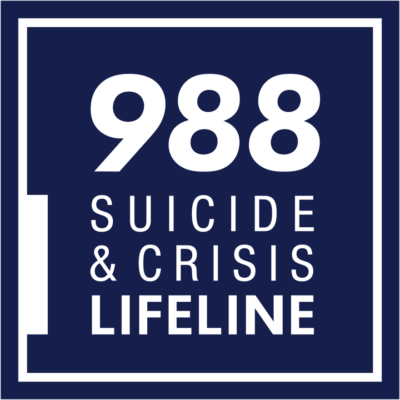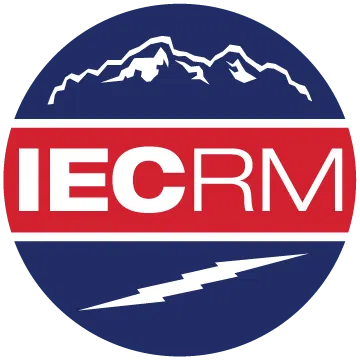September is National Suicide Prevention Awareness Month

IECRM is committed to leading the industry in providing valuable resources to its members and partners. Shared in May 2022, this article provides valuable insight into the mental health crisis in the electrical industry.
Why Mental Health in the Workplace and on the Jobsite Matters
Mental health is top of mind for business leaders from various companies in all industries. This includes construction. It has not always been that way. Historically, talking about mental health in the workplace (and even more so on job sites) was taboo. Mental health is a personal issue, a family matter, a community concern, and a societal challenge.
Why has it not been a workplace issue?
Stigma and Shame
Stigma is a major barrier that keeps people from acknowledging that they are not ok. Stigma is a fear of the unknown combined with a fear of judgment from others or fear of consequences — both real and perceived. Stigma remains a barrier that keeps people from either offering or seeking help. Acknowledging that help is needed historically has been seen as a sign of weakness rather than as a sign of strength. Stigma and shame go hand in hand. Where stigma and shame exist people are uncomfortable or afraid to talk about mental health which leads to people suffering in silence.
Rising Pressures in Construction
These are stressful times filled with uncertainty. Supply chain disruptions and delays, along with rising costs and financial pressures, are inducing pressures across all sectors of construction. The regular pressures of construction are immense, including demanding work conditions with long hours, frequent overtime, pressing deadlines, long commutes, and travel which separates workers from families and other supports. These pressures spill over and affect the workforce and workplace. Rising stressors of anxiety, depression, and substance misuse include decreased productivity quality, risk, and safety performance. These factors ultimately impact project and company profitability.
Why Attention to Rising Risks Among the Workforce Matters
For many years, construction has had heightened awareness of the risk of suicide among construction workers and retirees. Yes, construction is the industry with the second highest rate of suicide among all industries. However, there is good news, too. The Construction Industry Alliance for Suicide Prevention was formed in 2016. The cover story of Engineering News-Record on August 3, 2021 (or digital issue on July 28, 2021) featured stories of hope, help, and recovery in the construction industry of employers and employees dealing with mental health, addiction treatment and recovery, and suicide prevention. This is the real news!
2021 Mental Health and Well-being in Construction Pulse Survey
In September 2021, the Center for Workplace Mental Health released the results from the Pulse Survey on Mental Health and Well-being in the Construction Industry. This pulse survey sheds light on the importance of workers’ mental health and well-being in construction and opportunities to continue moving forward in effectively addressing these issues.
The final survey report highlights findings, strategies, recommendations, and resources to improve mental health for construction workers. The Mental Health and Well-being Survey addresses four crucial challenges:
1. Engaging company leaders to support mental health initiatives visibly and vocally. Leaders are encouraged to lead by example with vulnerability to let workers know “it is ok to not be ok”. Leaders who care share resources to help workers and families in need of support.
2. Raising mental health awareness by sharing a continuous stream of resources with employees. It is important for employees to better understand the services and supports available to them and their dependent family members. Teaching employees how to tap into Employee Assistance Programs and employee health insurance programs is important education.
3. Creating a mental health culture to reduce the stigma and shame associated with mental health. It is important to increase the literacy of health and mental health for leaders at all levels in your company. Take time to educate leaders and supervisors on why mental health is a workforce imperative and provide training to encourage psychological safety in the workplace and on job sites.
4. Removing barriers and enhancing access to mental health services and support. One way to remove barriers to care is to integrate mental health into human resources functions, employee benefits programs, and safety/health and wellness practices.
Call to Action – Three Immediate Steps Leaders Can Take
1. Read the 2021 Mental Health and Well-being in Construction Survey Final Report.
2. Read the flipbook Building a Caring Culture: Addressing Mental Health in the Workplace.
3. Discuss mental health with your senior leadership team and develop a simple strategy to develop a mental health culture and improve sharing of resources with employees and family members.
Cal Beyer, CWP, is Vice President of Workforce Risk and Worker Wellbeing for CSDZ, a Holmes Murphy company. He is a former risk manager for a contractor based in the Pacific Northwest. Since 2010 he has served with the National Action Alliance for Suicide Prevention and on its Executive Committee since 2016. He serves on the Expert Advisory Group for the Center for Workplace Mental Health and Heritage CARES. Cal was instrumental in the launch of the Construction Industry Alliance for Suicide Prevention. Contact Beyer at cbeyer@CSDZ. com or 651/307-7883. Printed with permission.
Join IECRM for two important Member Forums Spotlighting the Crisis of Mental Health and the urgent need for Suicide Prevention on Wednesdays, September 14th, and September 28th. Register now to receive the Zoom Links.
Wednesday, September 14th, 7:30 AM
Or
Wednesday, September 28th, 7:30 AM
If you or someone you know is struggling with suicidal thoughts or mental health matters, please call the National Suicide Prevention Lifeline at 988 to connect with a trained counselor or visit the NSPL site.
Valuable Resources:
https://preventconstructionsuicide.com/
https://988lifeline.org/?utm_source=google&utm_medium=web&utm_campaign=onebox THIS IS NEW AND WHEN YOU SEE SUICIDES REPORTED IN THE MEDIA – THIS IS THE RESOURCE THE STORIES CONNECT PEOPLE TO….. DIAL 988 (like you would dial 911 in an emergency)
Construction Industry Alliance for Suicide Prevention. —- check out this website and resources
